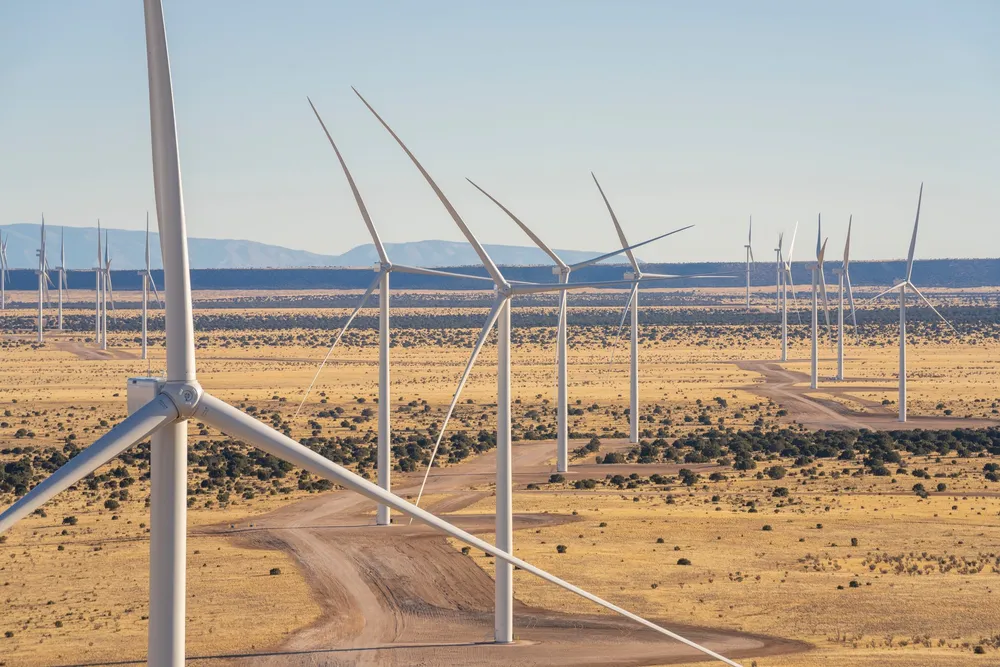TPI boss: how Trump and China drove blade giant to bankruptcy court
US wind group's CEO lists string of challenges that also includes Turkish strikes and Mexican production mishaps

The CEO of TPI Composites has lifted the lid on woes ranging from Chinese competition to Donald Trump’s policies that led the global blade-making giant to seek the haven of Chapter 11 bankruptcy.
In a filing to a Texas bankruptcy court, Bill Siwek also revealed that TPI is seeking an exit from its strike-plagued Turkish factory and has faced production challenges at its Mexico blade plant.
In a Tuesday-dated submission giving background to the filing, Siwek lists a range of setbacks and challenges faced by the manufacturer, which employs 14,000 and claims to have supplied 27% of blades globally last year, excluding China. Almost all its deliveries went to GE Vernova, Vestas and Nordex.
'Policy whipsaw effect'
Siwek said TPI had to deal with “industry headwinds and market uncertainty resulting from the whipsaw effect of renewable energy policy changes and reversals”.
He told the court: “Unfortunately… the current executive administration of the United States is making a substantial effort to phase out meaningful renewable energy subsidies that were previously established under the IRA [Inflation Reduction Act], resulting in considerable uncertainty across the sector, in particular with respect to wind development projects.”
Those shifts put TPI’s “production for domestic wind projects at considerable risk of cancellation or delay” said Siwek. “Perhaps more consequential, these policy shifts have generally impacted the willingness of OEM customers to commit to meaningful volumes beyond a one-year period even in the American market where [TPI] have been relatively insulated from foreign competition.”
Chinese subsidies make competing tough
The nature of the foreign competition is explicitly spelled out by Siwek, who bemoaned the fact that TPI had for years prospered because of its “international footprint” and ability to serve local customers from hubs around the world.
He said: “Chinese turbine and turbine blade manufacturers, which are subsidised by the Chinese government, have made considerable advances over the past few years, capturing very significant market share outside of the United States, making it increasingly difficult for the company to compete internationally.
“China’s excess blade manufacturing capacity affords state-supported turbine and turbine blade manufacturers a great degree of cost flexibility and, by extension, capacity adjustability.”
Its global production operations have faced other challenges, not least in Turkey, Siwek said in the Texas filing.
TPI is now looking for an exit from its Turkish operations after Vestas “unexpectedly” decided not to extend its contract and Nordex and Enercon cut their 2025 orders.
“These developments, coupled with prolonged hyperinflation and the onset of a labour strike in May 2025, have severely impacted the operating in Türkiye, forcing the company to recognize that Türkiye is no longer a viable option to serve markets outside of Türkiye.”
Meanwhile, in Mexico, TPI faced problems of another sort, Siwek disclosed.
The company in early 2024 decided to expand output at the plant but has “experienced repeated production challenges and costly delays related to complex new blade designs.
“The expanded footprint has encountered ongoing implementation issues as [TPI] seeks to accommodate these complex blade designs, which have suffered from inconsistent quality requirements from customers and have been difficult to produce.”
The resulting delays have triggered liability clauses from the manufacturer’s customers, Siwek added.
'Good faith negotiations underway'
The TPI CEO said the company is involved in “arm’s-length, good faith negotiations” with its senior lenders, which are expected to emerge from the restructuring process as the new owners of the business, and with key OEM customers.
The blade maker said it has agreed a deal to restructure its debt with creditor Oaktree Capital Management, giving TPI a financing facility of up to $82.5m, of which $27.5m is expected to be used to support its day-to-day operations.
TPI previously said it expects to continue to operate normally during the Chapter 11 process.
Siwek said the aim is to “reach agreement with stakeholders on the terms of a plan of reorganisation for the company to be able to right-size its balance sheet and go forward with the ability to compete successfully in the current economic environment”.
TPI's share price has collapsed by 77% over the last week as existing investors ran for cover.
(Copyright)